QuestionHi Carol,
My husband and I purchased a senegal parrot about 3 weeks ago, he/she is 4 months ago. I have a few questions about his body language/behaviors.
1. When sitting on my shoulder along with chattering, he does sort of a short, quick "clucking noise" along with short, jerky neck movements. Seems he does it when he is happy cause it's mixed with some chattering.
2. He shakes, rustles his tail feathers almost like he is trying to shake something off from his tail, this usually happens when he gets up on top of my shoulder (where he wants to be) what does this mean ?
3. As much as he loves being out of his cage (he usually wants to sit on top of his cage or his play perch or my shoulder) if I try to make him step up onto my finger when he is his cage he won't do it, but then I say oh ok maybe later and 2 minutes later he comes out on his own LOL is this ok to let him come out when he wants?
4. When he sleeps he is sorta puffed up a bit, is that ok or does it mean he's cold ?
5. How do you know if he is "giving kisses" near my mouth or trying to bite? I'm assuming they are "kisses" cause they are gentle nibbles?
6. If he is on his playstand or on top of cage and I leave the room or sit in another chair, most times he will screech and take off and try to fly towards me,normally landing on the coffee table or other table near me (his wings are clipped but he can get about 10 feet in distance)
Thank you very much for your time.
Dari
AnswerOk, I'll try to answer your questions in order so I don't confuse you.
1. The chattering is usually happy noise, and the quick neck movements (sometimes look like they're nodding quickly) are either a mating ritual (not likely since he's young) or he's begging to be fed (lots of birds have trouble being weaned.) You can try giving him some warm oatmeal, that may stop the begging
2. Shaking the tail is normal and (I believe) it's just a way of either balancing or getting comfortable. (like a dog circling before laying down)
3. I hardly ever put my hand in the cage to take a bird out, I wait until they sit on the door or on top of the cage. This is to teach the bird that he has his own territory that I will not invade unless absolutely necessary. This will prevent him from starting to bite you because he feels he needs to protect his cage.
4. Most birds to puff up when they sleep. If he stays puffed up during active hours, or puffs up the moment he isn't moving, that is a sign of illness.
5. Gentle nibbles are just kisses, but I still would not allow him to do this. I never let my birds even pretend to bite any part of my face because this gives them more of an opportunity to bite my face when they're angry. Biting your lips also can make him sick if you have a cold or the flu (you usually are contagious before you even know you're sick, so you can't just stick to not giving kisses when you think you're sick)
6. He needs to learn to play by himself. This is a technique used by parenting coaches that I tried and found works for birds, also. Each time he flies away from the play stand, come back, put him on top of the cage, and leave. It takes a LOT of time and you'll be quite tired once he gives up, but it's worth it. It takes more than one day for it to work completely, too, however it is very successful.

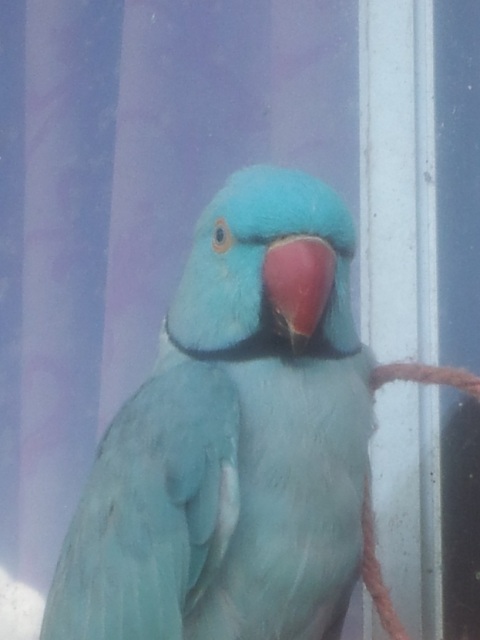 RE: Indian Ringneck probems
Question
Indy our Ringneck
Thank you for your he
RE: Indian Ringneck probems
Question
Indy our Ringneck
Thank you for your he
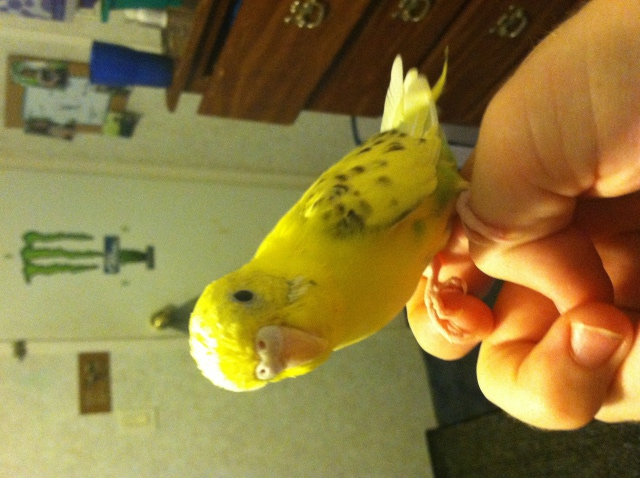 Parakeet gender
Question
Parakeet
Hi, I looked for an expert und
Parakeet gender
Question
Parakeet
Hi, I looked for an expert und
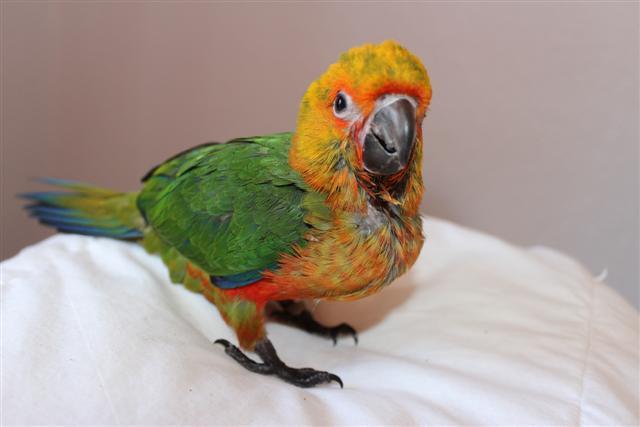 Jenday Conure Weaning?
Question
Castor the Conure
Hi
I have a 9 week o
Jenday Conure Weaning?
Question
Castor the Conure
Hi
I have a 9 week o
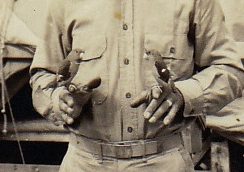 ID Birds
Question
Panama Birds
My uncle served in Panama in 1941
ID Birds
Question
Panama Birds
My uncle served in Panama in 1941
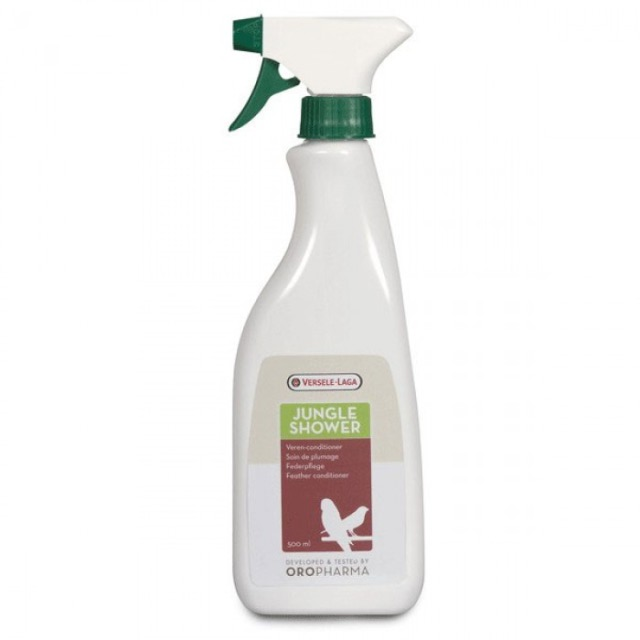 Indian Ringneck Health Issue
QuestionI have an Indian Ringneck who had been neglecte
Indian Ringneck Health Issue
QuestionI have an Indian Ringneck who had been neglecte